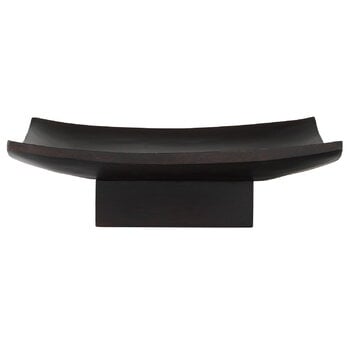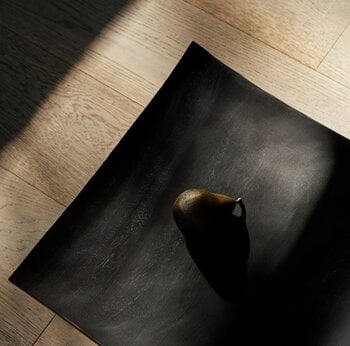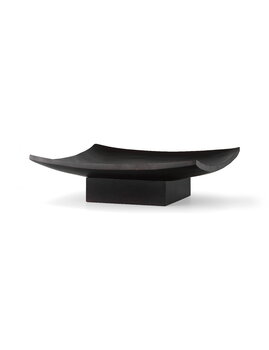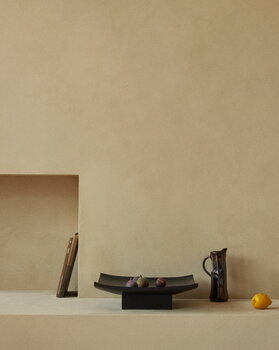Audo Copenhagen's Relevé platter seems to float in the air – and the centre of attention. Made of dark acacia wood, the serving platter charms with its natural surface, elegant colour and softly curved edges. The charming tray is suitable for various different uses: you can use it as a serving tray on table settings, for enjoying breakfast on a bed or to store tiny treasures in the living room, bedroom or hallway.
The Relevé serving tray is a part of the collection designed by Colin King for MAudo Copenhagen, whose dramatic and decorative objects celebrate the beauty of natural materials and forms, and dazzle in any space.














